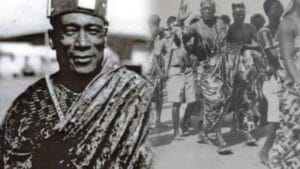
Ngũgĩ wa Thiong’o, a prolific Kenyan writer and an ardent critic for African identity has passed on at age 87 in Atlanta on May 28th, 2025.
His demise marks the end of a life built on resilience to colonial hegemony exemplified via African literature, and as a genuine advocate for indigenous languages and lived realities.
Ngũgĩ wa Thiong’o was born in 1983 in Limuru during British colonial rule and amidst the Mau Mau insurrection, a period marked by significant social inequities regarding employment opportunities. This volatility impacted his life and inspired the first East African novel, Weep Not, Child, which was published in English in 1964. He published another A Grain of Wheat in 1974. It discussed a nation on the verge of independence, yet fraught with conflict.
Everyone, including the colonial masters, was captivated by Ngũgĩ’s extraordinary literary abilities and writing capabilities, and both foreigners and indigenous people enthusiastically endorsed her work. He completely gave up English in favor of his native Gikuyu language in order to escape everything associated with his colonial overlords.
Ngũgĩ’s admonition for politicians to be honest incurred a personal problem. He co-founded the Kamiriithu Community Education and Cultural Centre, which serves as a catalyst for social transformation. The group performed a drama in 1976 in the Gikuyu language, resulting in his imprisonment in 1977. His arrest came because the play addressed the socio-economic inequalities facing Kenya citizens.
After his release from prison he still faced prosecution forcing him to leave the country in 1982. He spent a greater part of his life while in exile in the US. He was a tutor at Yale University, New York University.
Some of his works include Petals of Blood, Devil on the Cross, and Wizard of the Crow. Ngũgĩ’ criticized politicians through his writings creating enemies for himself. His writings were hinged on colonialism, neocolonialism, post-independence era.






